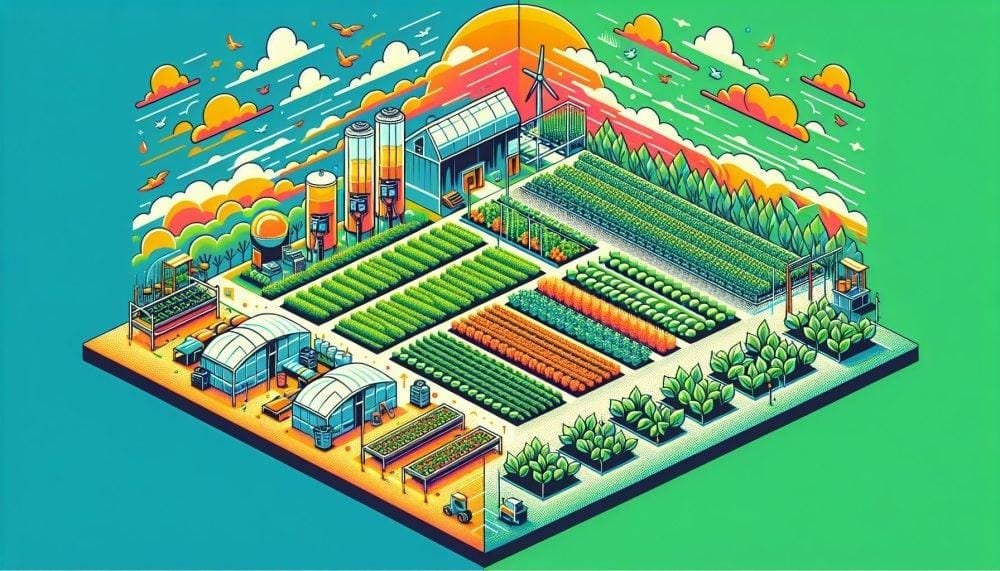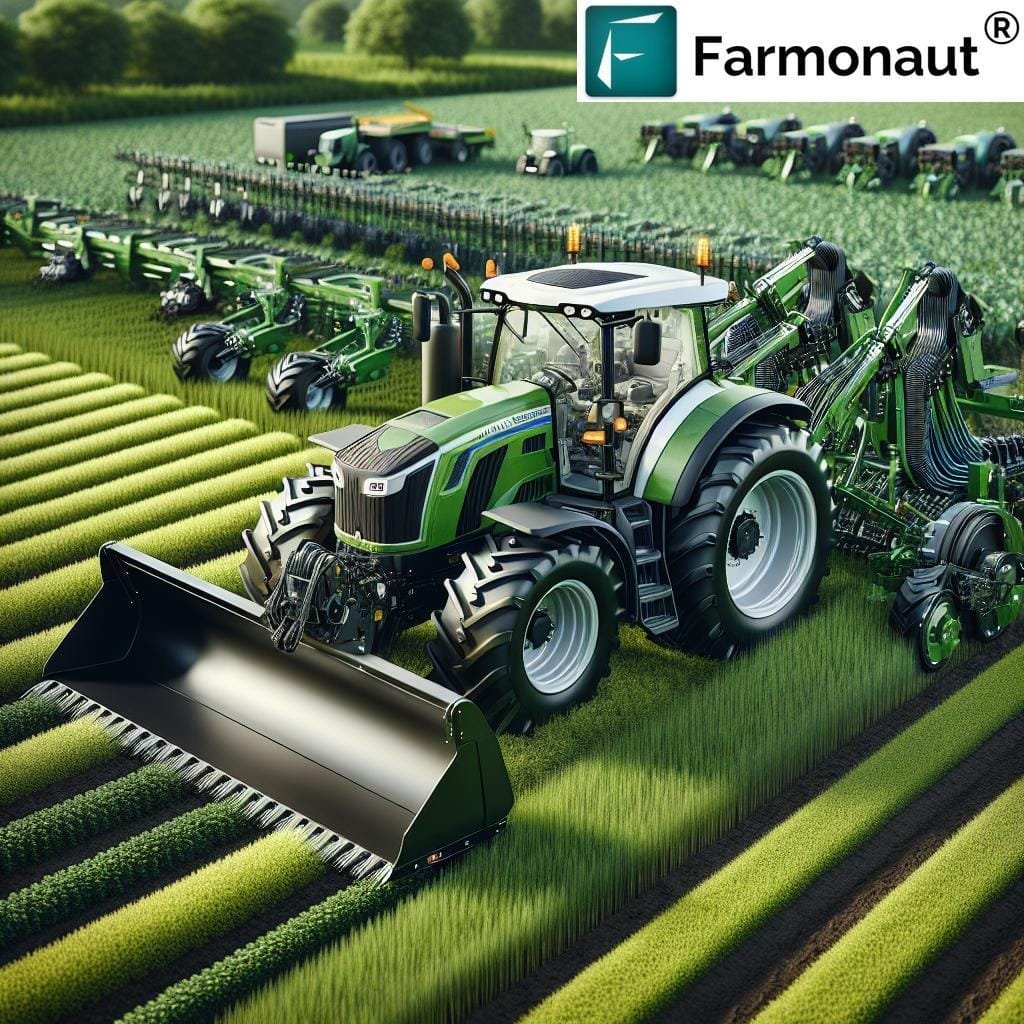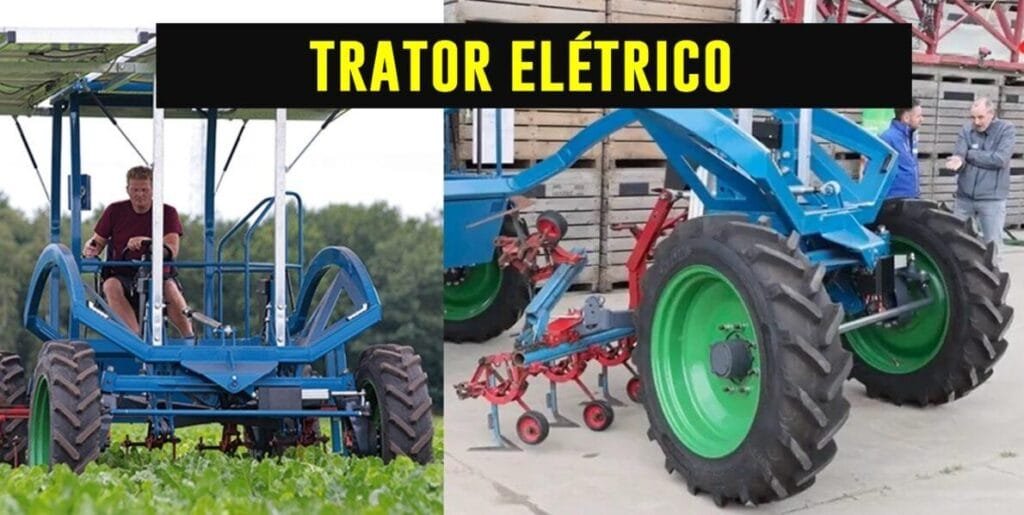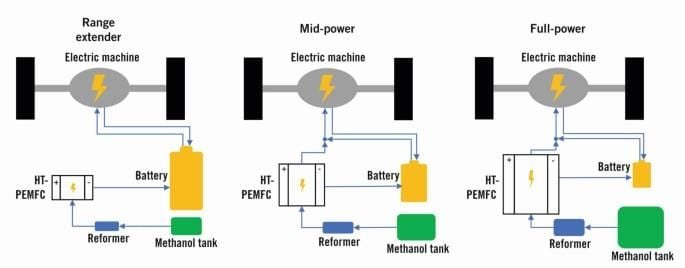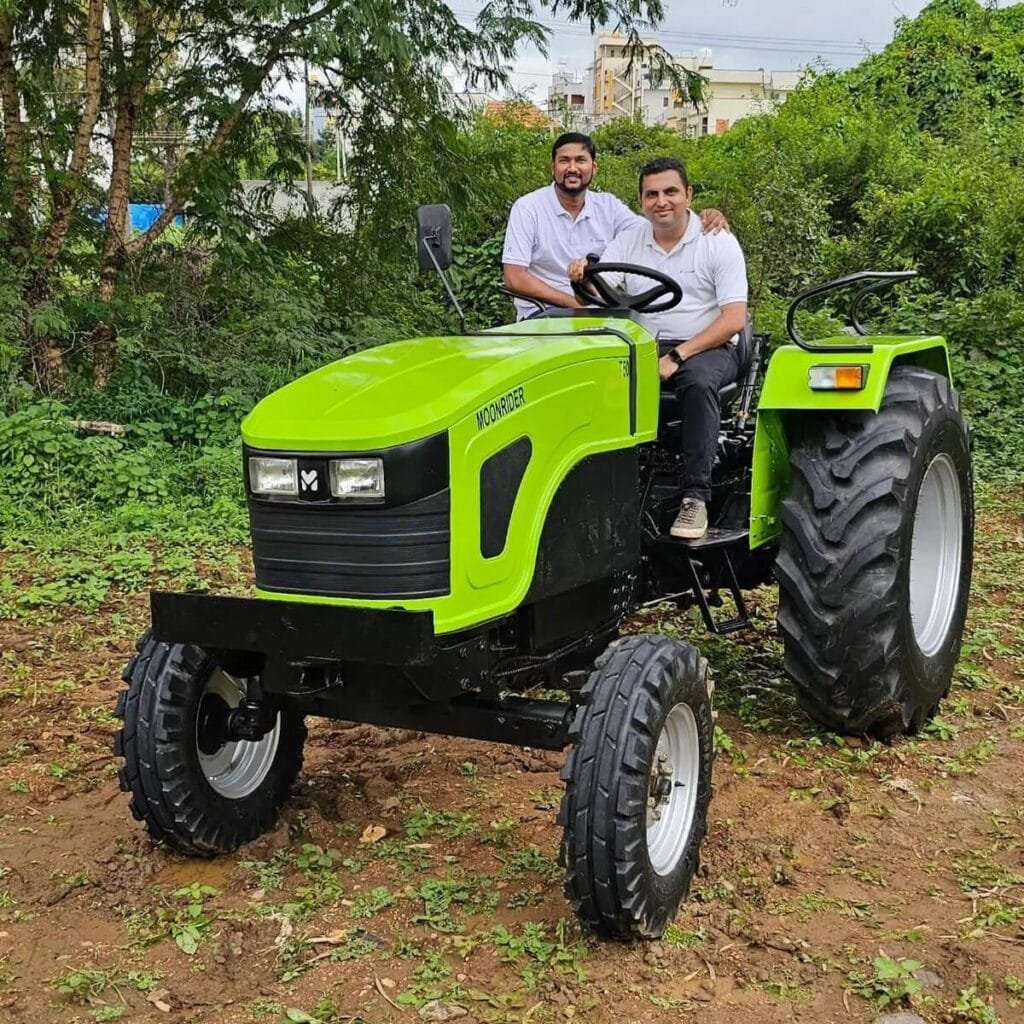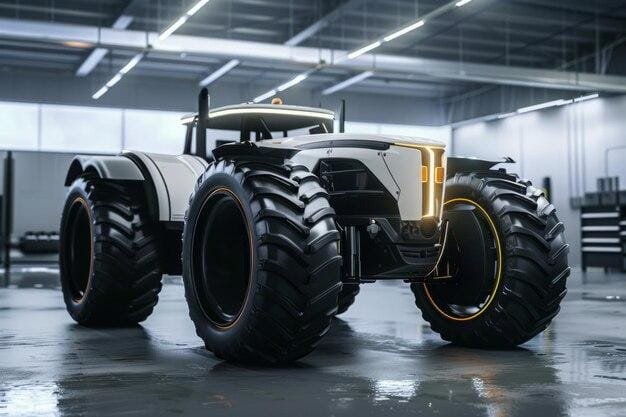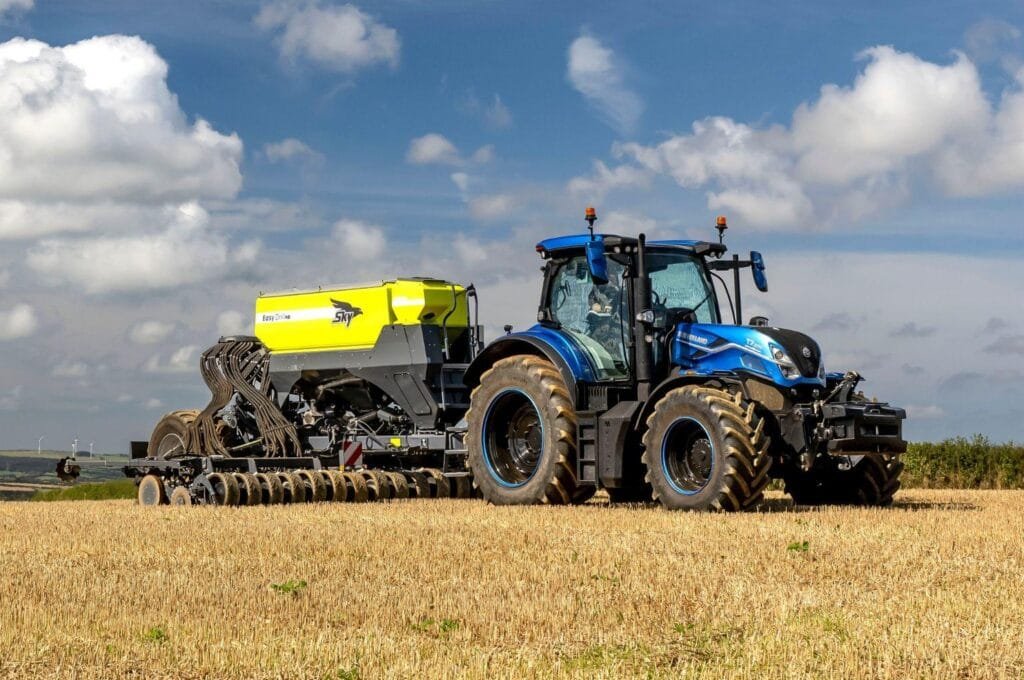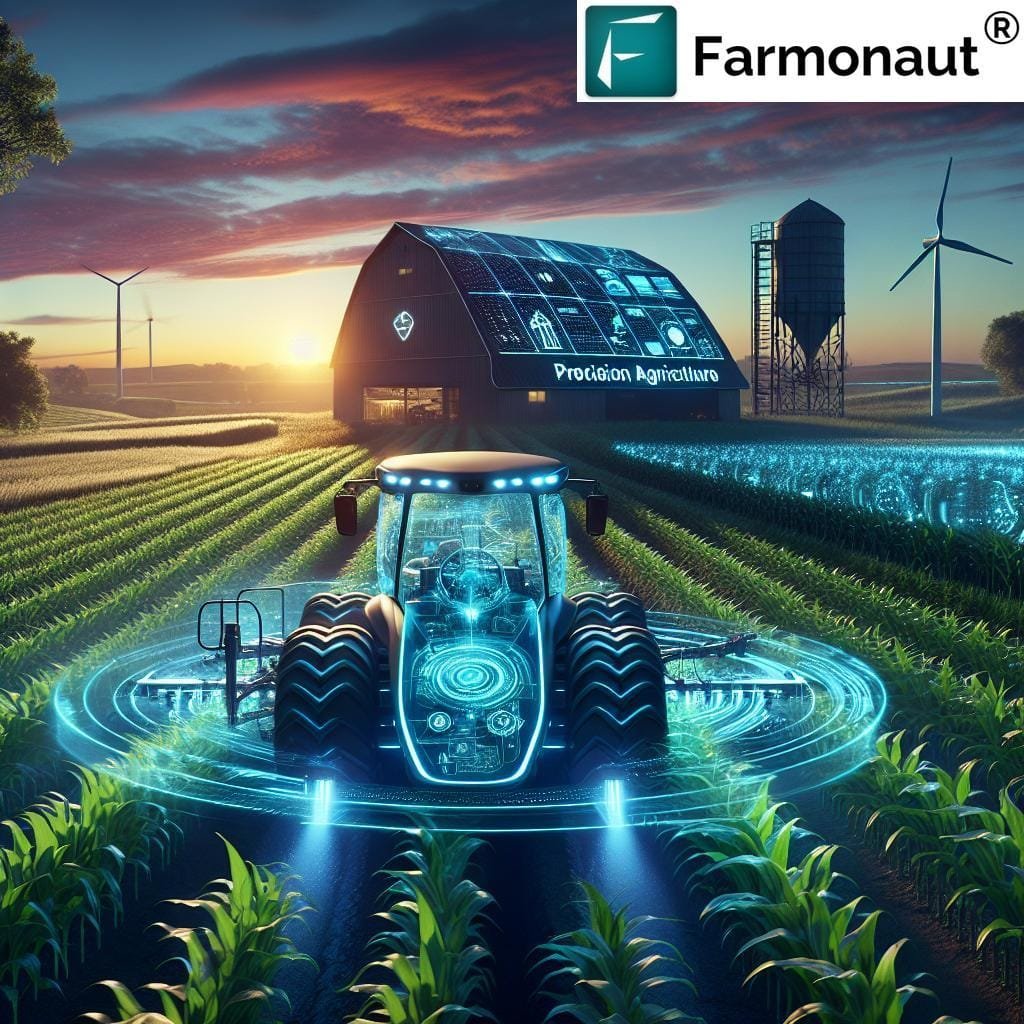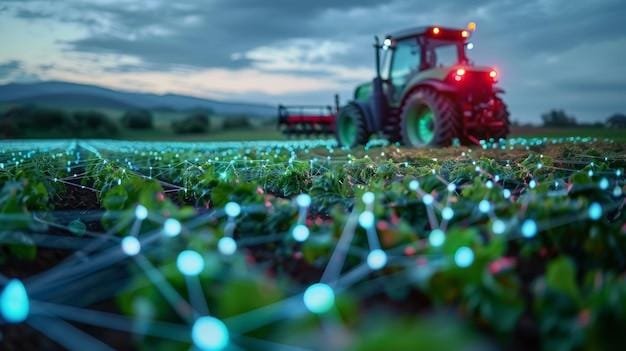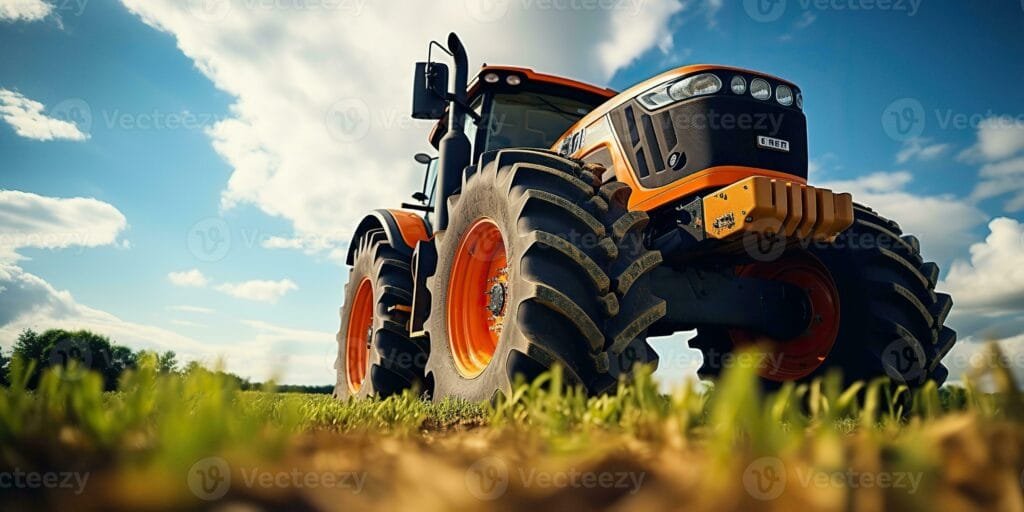The major technology exhibition’s bustling halls bristled with anticipation. Amid neon-lit displays, a quiet gravity settled over the agricultural pavilion—where sustainability no longer remained just a buzzword but marched forward as an actionable creed. Unlikely to steal attention from splashy start-ups in adjacent booths, some farming innovations instead drew subdued crowds for their understated ingenuity.
IoT Sensors: The Cultivators’ New Eyes
When visitors approached the demonstration of interconnected IoT sensors, they did not see spectacle; yet the underlying orchestration of monitoring systems became palpable. With soil moisture relayed in near-real time and microclimate alerts chiming softly on remote dashboards, decision-making evolved beyond educated hunches to data-grounded choreography. Arable’s and Semios devices, buried like industrious moles beneath furrowed beds, deciphered ecological patterns with unexpected subtlety. Optimal fertilizer application emerged as a gentle suggestion from aggregated sensor data rather than rigid software prescription—a curious inversion considering most expected strict algorithmic control.
Autonomous and Electric Equipment Find Their Groove
Unmanned tractors traced meandering paths across the demonstration plot outside—a script more jazz than sonata—deviating slightly on purpose as GPS-guidance vied with local adjustments for stones or unanticipated animal wanderings. Drifting between solar-powered weeders and battery-operated cultivators felt almost like urban commuting gone bucolic. Emissions quietly slumped while efficiency took center stage—even if every operator didn’t agree that labor costs fell quite so quickly as promised.
Drone Integration: Aerial Oddities Demystify the Canopy
Visitors craned necks skyward at crop surveillance drones beaming hyperspectral analyses to modded tablets below. Precision spraying routines sometimes faltered when winds shifted mid-flight—a subtle reminder how robust design must accommodate Murphy’s Law more often than not. Some farmers lingered by drone displays longer than by robotics demos indoors; perhaps soaking up aeronautical nostalgia crossed with hope for precision that satellites alone often fail to deliver before harvest calamities strike unexpectedly.
Precision Agriculture: Deciding When Enough Is Enough
Not all advances sought maximum granularity; several innovators extolled variable rate technology as useful mainly within certain bounds. Applying minimal pesticide over irregular topography required balancing theory against boots-on-the-ground realities like tire ruts or flint outcrops hiding under thin loam. Rather than pursuing blanket resource reduction—once believed universally achievable—practitioners explored how minimally sufficient inputs molded optimal yields season-over-season in an unpredictable climate cycle.
Artificial Intelligence Forecasts…with Reservation
Predictive algorithms may forecast ideal planting windows better today but smallholder skepticism still surfaced within panel discussions downstairs—the memory of one too many failed predictions yet unresolved between bitter coffee sips. As AI matured through exposure to global datasets collected across thousands of farms (and nearly as many dialects), it started suggesting alternative rotations unfamiliar locally—but not infrequently correct contingently eking out five extra bushels per acre during so-called ‘off’ years.
Regenerative Hopes Meet Pragmatic Limits
Composting initiatives rustled among seed catalogues beside conservation tillage implements—not always easy bedfellows philosophically but cohabiting amicably here since sustainability meant bending rather than breaking traditions until resilience reimagined itself organically (or at least semi-organically).
Meanwhile there was offhand talk about shifting consumer tastes reshaping input sourcing toward plants previously reserved for livestock feed—as oat-milk latte fans joined perennial grains enthusiasts by displays arrayed less predictably this year than last—it puzzled veteran attendees who half-expected tomorrow’s breakthrough would again favor familiar cereal crops over novel pulses after all.
Sophisticated Analytics Challenge Old Notions
As Sun Tzu never actually said but might have admired: “He who knows his field—and his field’s microclimates—can win without fighting fallow.” Data analysts parsed legacy yield records alongside recent drone imaging overlays, sometimes catching stochastic divergences where models confidently diverged from observable results—in those moments technical optimism paused just long enough for practical wisdom or researcher stubbornness (never both concurrently).
Labor Automation Reflects Global Shifts Slowly
Automation prototypes rolled through rows nimbly avoiding scarecrow arms left deliberately in awkward positions—for heritage’s sake mainly though inventors rationalized it was also stress-testing object recognition modules whose code occasionally insisted straw hats looked suspiciously like wheelbarrows. Labor-saving promises shimmer now less as harbinger of instant change and more akin to taped-together umbrellas against labor shortages raining down intermittently depending upon weather pattern forecasts nobody wants to trust completely—even after three consecutive accurate predictions.
Topic Drift: Unexpected Legal Note
At one corner legal advisors debated intellectual property clauses tied up tightly around gene-edited hybrids. One expert stressed enforcing these patents would remain central; then midway through discussion he mused aloud if perhaps open-source models might yield greater resilience during seed scarcity following minor fluctuations in trade policy abroad this winter—which caused minor confusion before moving briskly onward without resolution.
Eco-Conscious Markets Shape Futures
One cannot rightly say if environmental claims outsell traditional branding yet momentum certainly gathers behind water-stewardship certifications flashing beside product QR codes linking back via blockchain records now nearly impossible to forge unless you try exceptionally hard—and then possibly only halfway successfully anyway.
Closing thoughts ebb away unevenly. Enthusiasm breezed throughout intersecting aisles while doubts hovered quietly above LED grow-light arrays flickering slightly when someone tripped a circuit breaker near end-of-day teardown time—a short interruption then back again into tomorrow’s sequence where innovation is neither wholly linear nor relentlessly progressive but knits itself together stitchwise across seasons much like old wives’ tales exchanged at twilight long ago before anyone dreamed robots might someday join them around harvest firesides.

